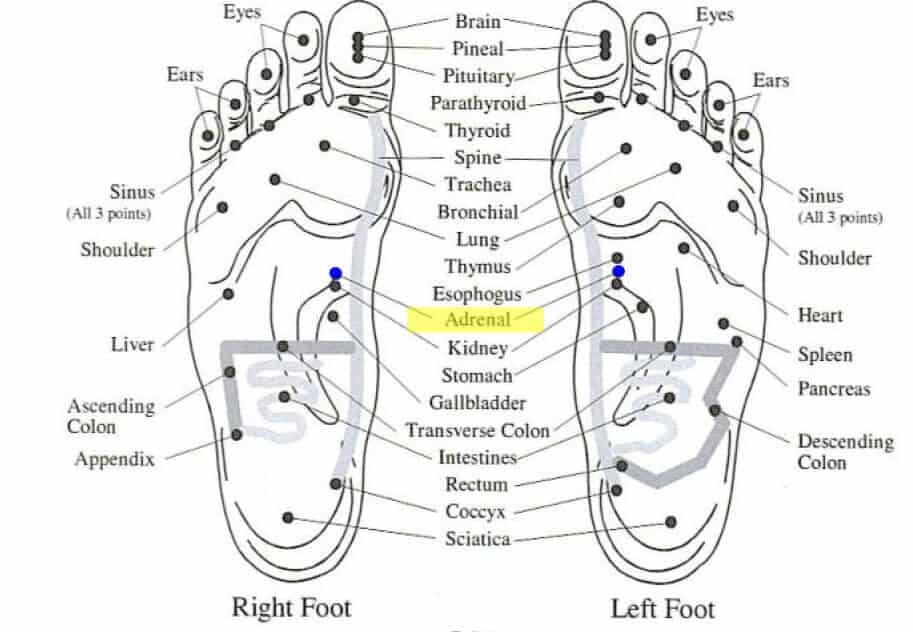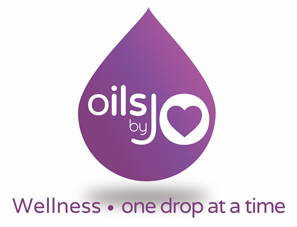Natural suggestions and information regarding Adrenal Failure/Fatigue
In the last 6 months I have lost count of how many clients have contacted me for suggested oils and help for adrenal issues.
Since its conception in the late 1990s, supporters of adrenal fatigue have claimed that the disorder exists and affects multiple people.
The term first came about after a chiropractor came up with the diagnosis and published the information. This article looks at the term “adrenal fatigue” and debunks myths about the condition, as well as examining the role of the adrenal glands and some medical issues that impact them.
What is adrenal failure ?
A condition in which the adrenal glands do not produce enough of the adrenal hormones that control important functions. The adrenal glands sit on top of the kidneys. They produce hormones that help control the heart rate, blood pressure, the way the body uses food, and other vital functions. Adrenal fatigue is a term applied to a group of non-specific symptoms. Although the term has found a level of popularity among alternative health practitioners.
According to people who propose adrenal fatigue as a real condition, it strikes people who endure long stretches of mental, physical, or emotional stress.
Despite this, there are certainly genuine conditions that affect the adrenal glands.
Symptoms
The symptoms of adrenal fatigue are said to include:
- tiredness
- trouble getting to sleep and waking up
- craving salt and sugar
- unexplained weight loss
- reliance on stimulants such as caffeine
- nonspecific digestive problems ongoing fatigue
- muscle weakness
- abdominal pain, nausea and diarrhoea
- low blood pressure
- depression and irritability
- hypoglycemia
- a headache
- excessive sweating
- irregular menstruation in women
All of the above symptoms are relatively generic but could indeed signal some type of illness. Many of the symptoms, however, could also be due to nothing more than a busy life and a lack of sleep, or, alternatively, a caffeine addiction, bad nutrition, or heightened stress levels.
The theory behind adrenal fatigue is that the adrenal glands, which are activated during stress, are overworked. Long-term stress causes these glands to become fatigued and unable to keep up with the demands of the body.
Diet
A balanced, nutritious diet can offset many of the symptoms associated with adrenal fatigue.
Some sources recommend a specific diet for adrenal fatigue. High-protein foods or supplements may be recommended.
Given the lack of evidence surrounding this condition, it is unclear what role, if any, the diet should take, or whether the additional protein is a good idea. However, any nutritious, balanced diet is likely to promote your immune system, sense of well-being, and overall health.
This includes regular intake of fresh fruit and vegetables, low intake of fatty, sugary, and processed foods, and limited consumption of alcohol and caffeine. Eating a balanced diet is a major key to overall wellness and may help prevent many of the symptoms assigned to adrenal fatigue.
Diagnosis
Certain alternative health practitioners might take blood samples or use salivary cortisol testing to prove whether or not an individual has adrenal fatigue.
To fully understand the real condition, in contrast to which adrenal fatigue is not, adrenal insufficiency, here is a brief introduction to the functions of the adrenal glands:
Your adrenal system carry out a number of vital tasks including:
maintaining metabolism, including the management of inflammation and blood sugar levels
- regulating salt and water balance
- regulating blood pressure
- maintaining pregnancy
- signalling the start of sexual maturation and controlling its progress through puberty
- controlling the stress-related “fight or flight” response
Disorders
Adrenal insufficiency is the medical term applied for conditions in which the adrenal glands do not release adequate amounts of their hormones. Cortisol is often the worst affected hormone.
Below are some medically proven adrenal gland disorders. Some of these can lead to adrenal insufficiency if not treated correctly:
· Adrenal tumours: These include adrenal adenoma, adrenocortical carcinoma, and pheochromocytoma.
· Addison’s disease: This condition means the adrenal glands do not produce enough of the glucocorticoid, cortisol, and also usually involves deficiency of production of the mineralocorticoid, aldosterone. Symptoms include abdominal pain, weakness, and too much skin pigment.
· Congenital adrenal hyperplasia: This is a group of disorders that involve mutations in genes that code for enzymes responsible for the production of cortisol in the adrenal glands.
· X-linked Adrenoleukodystrophy: A genetic disorder causes damage to the myelin sheaths that coat nerves. Very long-chain fatty acids accumulate in the brain and adrenal glands. This build-up causes adrenal insufficiency.
· Cushing’s disease: Cortisol levels produced by the adrenal glands are increased, due to a tumour in the pituitary gland.
· Hyperaldosteronism: The adrenal glands produce too much aldosterone, leading to high blood pressure, high sodium in the blood, and an increased excretion of potassium and hydrogen ions. This causes low potassium in the blood and a condition involving alkali levels called metabolic alkalosis.
· Hypoaldosteronism: The adrenal glands produce too little aldosterone, leading to decreased sodium and excessive potassium levels in the blood and low blood pressure.
Support
Many alternative practitioners will start “treating” adrenal fatigue by recommending that an individual quit alcohol, drugs, caffeine, and cigarettes. They will also recommend eating healthily, exercising more, and sleeping better. All of these changes will, of course, make anyone feel better.
There is a range of products to support despite a lack of scientific basis. These products often take the form of supplements and vitamins.
Taking adrenal hormone supplements without an underlying medical condition can be dangerous. The adrenal glands can become reliant on or suppressed by the supplements and might not begin working again for some time if they are stopped. This can cause adrenal insufficiency or crisis and become potentially life-threatening.
For anyone experiencing worrying symptoms, it is important to take advice from a medical professional. Although it can be frustrating having symptoms that defy diagnosis, taking advice from untrained practitioners can be ineffective at best and dangerous at worst.
1. Follow the adrenal diet.
This means getting rid of foods that you are sensitive to and foods that cause inflammation, and eating lots of brightly coloured vegetables, lean clean protein, and whole grain gluten-free carbs. A strict no-carb diet can stress the body even more, worsening adrenal burnout.
2. Go to bed early.
Getting to bed before 11pm is a must in any stage of adrenal fatigue. Many people get a second cortisol surge after 11pm, which further disrupts sleep patterns.
3. Flood the adrenals with B vitamins.
B vitamins (B5 and B6 in particular) are food for the adrenals and can be low in a high-fat, low-carb diet. B12 and folate also help with energy production.
4. Cool inflammation.
Using omega-3 fatty acids, curcumin, and vitamin C supplements we lowered her systemic inflammation levels allowing the adrenals to recover.
5. Replace important nutrients.
Vitamin D, selenium, magnesium and zinc are all important for proper thyroid function and adrenal function.
6. Focus on hydration.
Dehydration is also a hallmark of adrenal fatigue. You can also add Essential Oils to your water – lemon or Himalayan sea salt.
7. Use adaptogenic herbs.
Such as licorice root, ashwagandha and rehmannia, a Chinese formulation that helps balance and stimulate the adrenals.
8. Build rest and relax into the day.
The last thing anybody needs is a high-intensity cardio that would further burn anybody out, so try yoga – Iyengar yoga twice a week and also have two 20-minute rest breaks a day, time outs alone to breathe and restore. Listening to calming music is also a great idea. Mindfulness sessions are also a great way to relax the whole body. Writing a gratitude diary is away to feel happy and relax. Nice long soak in the bath with a candle, essential oils in the water with Epsom salts too – bliss. Cut out the electronic devices as early as possible in the evening.
9. Change your perspective.
Is your definition of success killing you? In many cases, what you perceive as success is driving you into adrenal overload. Helping people internalize the idea that “it” doesn’t have to be perfect to be great made a huge difference in stress levels.
10. Use Essential Oils.
Essential Oils can be used different ways to support adrenal function and renewal. In a diffuser both at home and in the office. They can create a relaxing environment for you to deal with your everyday to do list. You can add a drop to your drinking water throughout the day and also a drop to your bath in the evening to start the bedtime relax routine. Here is a link to show how Essential Oils can support you https://www.ncbi.nlm.nih.gov/pubmed/17291597 – this study shows that smelling Rosemary and Lavender decreased cortisol production in saliva (which is the stress hormone)
Cinnamon bark is known to strengthen the endocrine system (our adrenals are part of this system), the nervous system, and could support blood sugar levels. It promotes physical energy and stimulates the immune system. One great thing about cinnamon bark is that is can amplify the action of other essential oils just like copaiba essential oil.
Cinnamon bark enhances self-love, acceptance, and allows us to release negativity.
Apply diluted cinnamon bark essential oil over the adrenal points on the bottom inner arches of the feet. See chart below.
2. Clove
Clove stimulates the vagal nerve to activate a digestive cascade which improves overall digestive health. Clove is also known to stimulate healthy circulation, higher energy levels, and relieve fatigue associated with adrenal burnout. It boosts the mood and relieves stress.
The best place to apply diluted clove essential oil for adrenal support is behind the ears on the jaw bone.
3. Helichrysum
Helichrysum helps regenerate and heal damaged nerves and connective tissues and is an exceptional pain reliever. It supports the liver, gall bladder, and pancreas and alleviates stress and negativity. I enjoy using this oil for mental clarity and energy when adrenal burnout clouds your mind.
Apply helichrysum diluted on the temples or back of the neck.
4. Lavender
Lavender essential oil has long been known to aid those with sleeping troubles and stress related conditions. Its soothing and calming effects help prevent the adrenals from springing into action needlessly which allows them to recover and restore themselves.
Use lavender in a calming room spray, in the diffuser, or in a bed-time roll-on applied to the chest for best results.
5. Lime
Lime essential oil is amazing for providing a calming/balancing aroma. It is known to refresh mental tiredness, uplift and dissipate negative thinking, and stimulates positive energy. It’s a wonderful essential oil to use when feeling depressed. Lime works exceptionally well when blended with clove to create a relaxing parasympathetic blend.
Apply lime diluted behind the ear on the jawbone for best results. Keep the area of application out of direct sunlight.
6. Rosemary
Rosemary is known to rapidly reduce cortisol levels in minutes just by smelling it. This is one of the best ways to help alleviate and control stress in the body. When you are able to lessen the burden on the adrenals they will be able to restore themselves. I highly recommend everyone own a bottle of rosemary essential oil for this reason!
Smell rosemary from the bottle for 2-3 deep breaths, use in relaxing room and pillow sprays, or diffuse.
7. Thyme
Thyme’s fragrant influence allows it to help one overcome fatigue and mental exhaustion. It helps balance the hormones associated with the adrenal glands, strengthens the nerves, and helps you feel a sense of calm and relaxation. Thyme is an excellent essential oil for relieving emotional fatigue.






